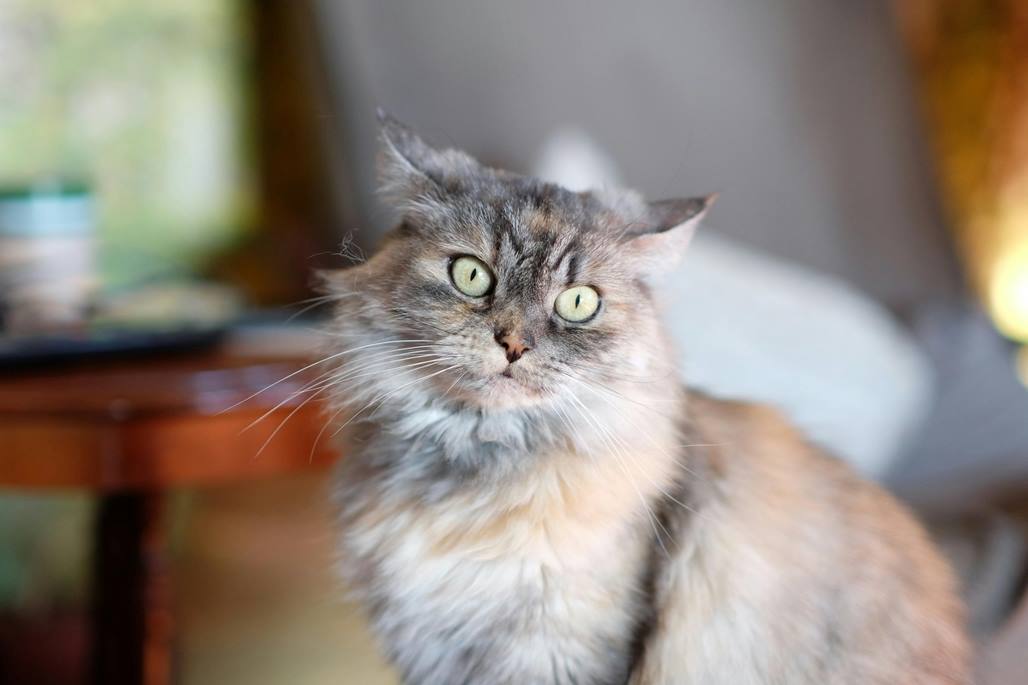In this Article
Adopter un chat âgé dans un refuge est l'une des décisions les plus gratifiantes qu'un amoureux des animaux puisse prendre. En 2025, face à la surpopulation des refuges, les chats âgés – généralement ceux de 7 ans et plus – sont souvent délaissés au profit de chatons ou de jeunes chats. Pourtant, ces chats matures offrent des joies uniques, des avantages indéniables et la possibilité d'avoir un impact profond sur leur vie. Cet article explore les raisons convaincantes d'adopter des chats âgés, étayées par des analyses d'experts, des données et des conseils pratiques pour inciter les adoptants potentiels à ouvrir leur cœur et leur foyer à ces compagnons méritants.
Le sort des chats âgés dans les refuges
Les chats âgés rencontrent d'importantes difficultés pour trouver un foyer permanent. Selon l'American Society for the Prevention of Cruelty to Animals (ASPCA), environ 3,2 millions de chats sont accueillis chaque année dans des refuges aux États-Unis, et les chats âgés sont parmi les moins susceptibles d'être adoptés. Une étude de 2024 menée par la Humane Society of the United States a révélé que les chats âgés passent en moyenne 6 à 12 mois dans des refuges, contre seulement 1 à 3 mois pour les chatons. Ce séjour prolongé peut entraîner du stress, une détérioration de la santé et, dans certains cas, l'euthanasie en raison du manque d'espace.
Pourquoi les chats âgés sont-ils négligés ? On pense souvent à tort que les chats âgés sont moins adaptables, ont plus de problèmes de santé ou tissent moins de liens avec leurs maîtres. Or, ces idées reçues sont souvent infondées. Les chats âgés ont beaucoup d'amour à donner et s'épanouissent dans un environnement adapté, ce qui en fait des compagnons idéaux pour de nombreux foyers.
Les avantages uniques de l'adoption d'un chat âgé
Adopter un chat âgé présente de nombreux avantages, qui en font un animal parfaitement adapté à des modes de vie variés. Voici quelques-uns de ses principaux avantages, étayés par des avis d'experts et des données :
1. Personnalités calmes et posées
Contrairement aux chatons, souvent turbulents et nécessitant une surveillance constante, les chats âgés ont une personnalité pleinement développée. Ce que vous voyez est ce que vous obtenez : un chat calme et posé, susceptible d'apprécier se prélasser, faire des câlins ou observer le monde depuis un perchoir confortable. Le Dr Emily Weiss, comportementaliste vétérinaire, remarque : « Les chats âgés ont dépassé leur phase de surmenage, ce qui les rend idéaux pour ceux qui recherchent un compagnon facile à entretenir. Ils sont donc particulièrement adaptés aux seniors, aux professionnels occupés ou aux nouveaux propriétaires de chats. »
2. Déjà formé et socialisé
La plupart des chats âgés hébergés dans les refuges sont déjà habitués à la litière, aux routines de la maison et socialisés pour interagir avec les humains. Une enquête Petfinder de 2023 a révélé que 85 % des chats âgés adoptés n'avaient besoin d'aucune formation supplémentaire, contre seulement 40 % des chatons. Cela permet aux adoptants d'économiser du temps, des efforts et parfois des frustrations liés à l'apprentissage des bons comportements à un jeune chat.
3. Parfait pour les petits espaces
Les chats âgés sont moins enclins à grimper aux rideaux ou à renverser les vases, ce qui les rend idéaux pour les appartements ou les petites maisons. Leur faible niveau d'énergie les pousse à se contenter d'un lit douillet, de quelques jouets et d'une fenêtre pour observer le monde. Cette adaptabilité s'inscrit parfaitement dans les tendances urbaines de 2025, où l'espace est souvent limité.
4. Liens émotionnels profonds
Contrairement au mythe selon lequel les chats âgés ne créent pas de liens affectifs, les chats seniors tissent souvent des liens profonds avec leurs adoptants. Nombre d'entre eux ont vécu une perte ou un abandon, ce qui les rend particulièrement reconnaissants d'avoir un foyer aimant. Une étude de 2024 publiée dans le Journal of Applied Animal Welfare Science a révélé que les chats âgés manifestent des comportements d'attachement – comme ronronner, pétrir et rechercher la proximité – à des rythmes comparables à ceux des chats plus jeunes, ce qui contredit l'idée qu'ils sont moins affectueux.
5. Transparence en matière de santé
Les refuges proposent généralement des examens de santé complets pour les chats âgés, incluant analyses sanguines, examens dentaires et vaccinations. Les adoptants reçoivent un historique médical détaillé, réduisant ainsi l'incertitude souvent associée aux jeunes chats dont les problèmes de santé peuvent passer inaperçus. De nombreux refuges proposent également des soins vétérinaires subventionnés pour les chats âgés adoptés, réduisant ainsi les risques financiers potentiels.
6. Un acte qui sauve des vies
Choisir un chat âgé est un acte de compassion. Alors que les refuges peinent à accueillir l'afflux d'animaux, adopter un chat âgé libère de l'espace et des ressources pour d'autres. L'ASPCA rapporte que les adoptions de chats âgés ont un effet domino, réduisant les taux d'euthanasie et incitant d'autres personnes à envisager l'adoption d'animaux plus âgés.
Répondre aux préoccupations courantes concernant les chats âgés
Les adoptants potentiels peuvent hésiter en raison de préoccupations concernant leur santé, leur longévité ou leur adaptabilité. Répondons à ces préoccupations avec des faits et des solutions pratiques :
Frais de santé et vétérinaires
Bien que les chats âgés puissent souffrir de maladies liées à l'âge, comme l'arthrite ou des problèmes dentaires, ces problèmes sont souvent gérables avec des soins appropriés. Les progrès de la médecine vétérinaire en 2025, tels que les compléments alimentaires abordables pour les articulations et la thérapie au laser, ont amélioré la qualité de vie des chats âgés. De nombreux refuges prennent en charge les premiers soins ou proposent des programmes de stérilisation et de vaccination à bas prix. De plus, les assurances pour animaux de compagnie adaptées aux chats âgés sont de plus en plus nombreuses, des assureurs comme Trupanion signalant une augmentation de 20 % des inscriptions d'animaux âgés d'ici 2024.
Durée de vie plus courte
Il est vrai que les chats âgés vivent moins longtemps que les chatons, mais le temps qui leur reste est rempli d'amour et de gratitude. L'espérance de vie moyenne d'un chat d'intérieur bien soigné est de 12 à 18 ans, et beaucoup vivent jusqu'à la vingtaine. Adopter un chat âgé lui garantit de passer ses plus beaux jours dans le confort, et non en cage. Comme le dit le comportementaliste félin Jackson Galaxy : « L'amour que vous partagez avec un chat âgé se mesure en qualité, et non en quantité. »
Adaptabilité
Les chats âgés sont étonnamment adaptables. Une étude réalisée en 2024 par l'Université de Californie à Davis a révélé que 78 % des chats âgés s'adaptaient à leur nouveau foyer en deux semaines, adoptant des comportements tels que manger normalement et utiliser régulièrement leur litière. Offrir une pièce calme, des objets familiers comme leur couverture préférée et une introduction progressive aux autres animaux peut faciliter la transition.
Les joies de l'adoption d'un chat âgé : histoires vraies
Des histoires vécues illustrent le pouvoir transformateur de l'adoption d'un chat âgé. Prenons l'exemple de Bella, une chatte tigrée de 10 ans adoptée dans un refuge de Chicago en 2024. Son adoptante, Sarah, une retraitée, décrit Bella comme « la compagne idéale », qui adore faire la sieste près de la fenêtre et l'accueille avec de douces caresses sur la tête. « Elle a apporté tellement de joie dans mon foyer tranquille », confie Sarah. De même, Max, un chat noir de 12 ans, a trouvé refuge chez un jeune couple à Seattle. Malgré les inquiétudes initiales liées à son âge, le côté joueur et la nature affectueuse de Max les ont conquis, prouvant que les chats âgés peuvent surprendre et enchanter.
Ces histoires ne sont pas isolées. Des plateformes comme X et Petfinder regorgent de témoignages d'adoptants qui décrivent les chats âgés comme des êtres fidèles, affectueux et qui changent la vie. En 2025, des campagnes sur les réseaux sociaux comme #AdoptASeniorCat gagnent en popularité, encourageant davantage de personnes à partager leurs expériences et à inspirer les autres.
Comment se préparer à adopter un chat âgé
Prêt à adopter un chat âgé ? Voici quelques étapes pratiques pour assurer une transition en douceur :
-
Recherchez des refuges et des organismes de sauvetage : recherchez des refuges ou des organismes de sauvetage réputés et spécialisés dans les chats âgés, comme la Grey Muzzle Organization, qui parraine des adoptions d'animaux âgés. Nombre d'entre eux proposent des rencontres virtuelles en 2025, facilitant ainsi la rencontre avec des animaux potentiels.
-
Créez un environnement adapté aux seniors : investissez dans des paniers orthopédiques, des bacs à litière à accès bas et des rampes pour faciliter la mobilité. Gardez leur chambre chaude et calme pour réduire le stress.
-
Planifiez un examen vétérinaire : dès la première semaine, emmenez votre nouveau chat chez le vétérinaire pour un bilan de santé. Discutez de son alimentation, de ses compléments alimentaires et de tout problème médical existant.
-
Soyez patient : laissez à votre chat âgé le temps de s'adapter. Offrez-lui une douce affection et laissez-le vous approcher à sa guise.
-
Envisagez des incitations à l'adoption : de nombreux refuges proposent des tarifs réduits pour les adoptions de chats âgés ou prennent en charge les frais médicaux initiaux. En 2024, des programmes comme « Senior Cat September » de Petco ont enregistré une augmentation de 15 % des adoptions de chats âgés grâce à ces incitations.
Vue d'ensemble : les chats âgés et la société en 2025
Adopter un chat senior s'inscrit dans les grandes tendances sociétales de 2025, notamment l'importance croissante accordée au développement durable et à la compassion. Avec l'adoption croissante d'un mode de vie minimaliste, les chats seniors s'intègrent parfaitement aux foyers éco-responsables et exigeants en entretien. De plus, les bienfaits de la possession d'un animal de compagnie sur la santé mentale sont bien documentés. Une étude de 2024 publiée dans Frontiers in Psychology a révélé que les personnes âgées possédant un animal de compagnie ressentaient moins de solitude et de stress, faisant des chats seniors des compagnons idéaux pour une population vieillissante.
De plus, l'adoption de chats âgés s'inscrit dans la mission éthique de réduire la surpopulation dans les refuges et de promouvoir le bien-être animal. En choisissant un chat âgé, les adoptants contribuent à une culture d'empathie et de responsabilité, donnant ainsi l'exemple aux générations futures.
Conclusion
Les chats âgés méritent d'être adoptés non seulement parce qu'ils ont besoin d'un foyer, mais aussi parce qu'ils enrichissent la vie de manières à la fois profondes et pratiques. Leur calme, leurs habitudes bien ancrées et leur profonde capacité d'amour en font des compagnons exceptionnels. En 2025, alors que les refuges continuent de défendre les chats âgés, le moment est plus propice que jamais pour envisager l'adoption d'un chat âgé.
Visitez votre refuge local, explorez des plateformes comme Petfinder ou suivez #AdoptASeniorCat sur X pour découvrir les chats âgés qui vous attendent. Accueillir un chat âgé, c'est non seulement sauver une vie, mais aussi trouver un ami fidèle qui comblera vos journées de chaleur et de joie. Adoptez un chat âgé dès aujourd'hui et vivez l'expérience incomparable d'offrir une seconde chance à un animal âgé.

